Real-Time ZK Proofs: How Ethereum Could Reach 100x–1000x Scalability
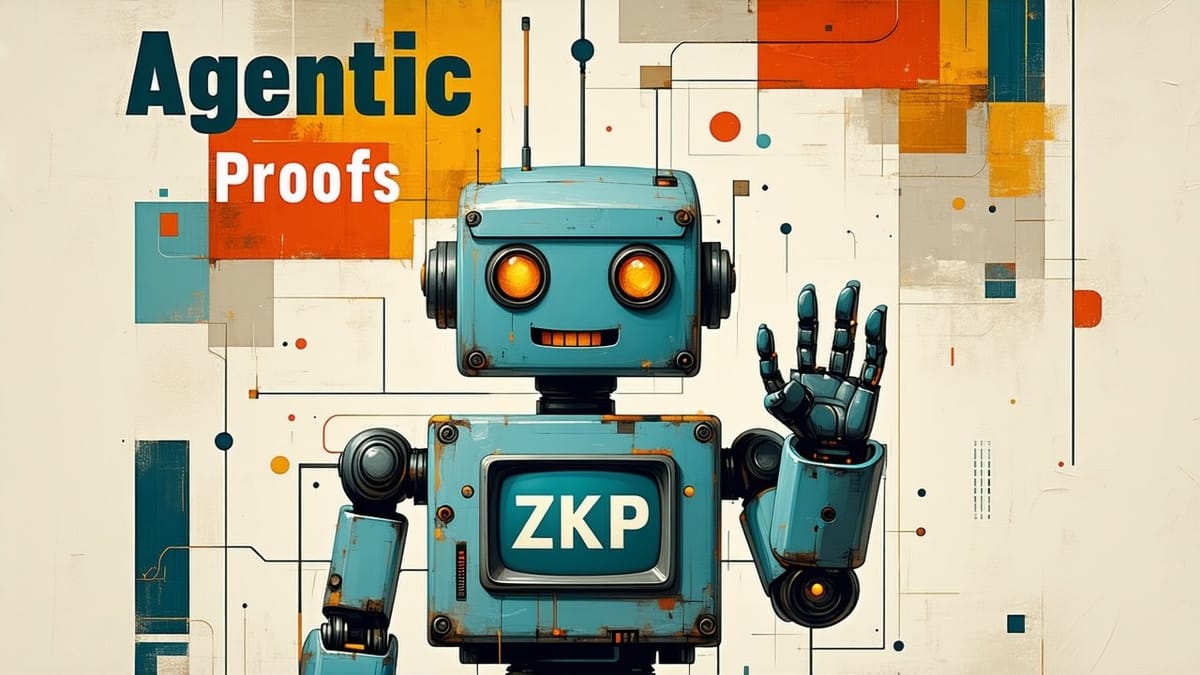
Ethereum has long faced the scalability trilemma: decentralization, security, and scalability can't all be optimized at once. But thanks to zero-knowledge proofs (ZKPs), the chain may be on the cusp of a major breakthrough: validity proving Ethereum L1 at 1-block latency.
In simple terms, this means Ethereum could reach finality for blocks almost instantly within the same 12-second block time. If this happens, it would radically reshape how Ethereum operates, potentially scaling its throughput by 100x or more. Let’s unpack what that means, how it works, and why ZK is the key.
How Ethereum Finality Works Today
Ethereum produces a block every ~12 seconds. Here’s what that process looks like:
- A validator is randomly chosen to propose a block.
- They pull transactions from the mempool and assemble them into a block.
- Other validators attest to the block’s validity.
- The block is added to the canonical chain.
However, this doesn’t mean the block is finalized. Finality is the point at which a block is irreversible which takes around 2 epochs, or about 13 minutes. That delay exists because Ethereum validators re-execute every transaction in the block to independently verify correctness. This ensures decentralization and security but is inefficient and limits scalability.
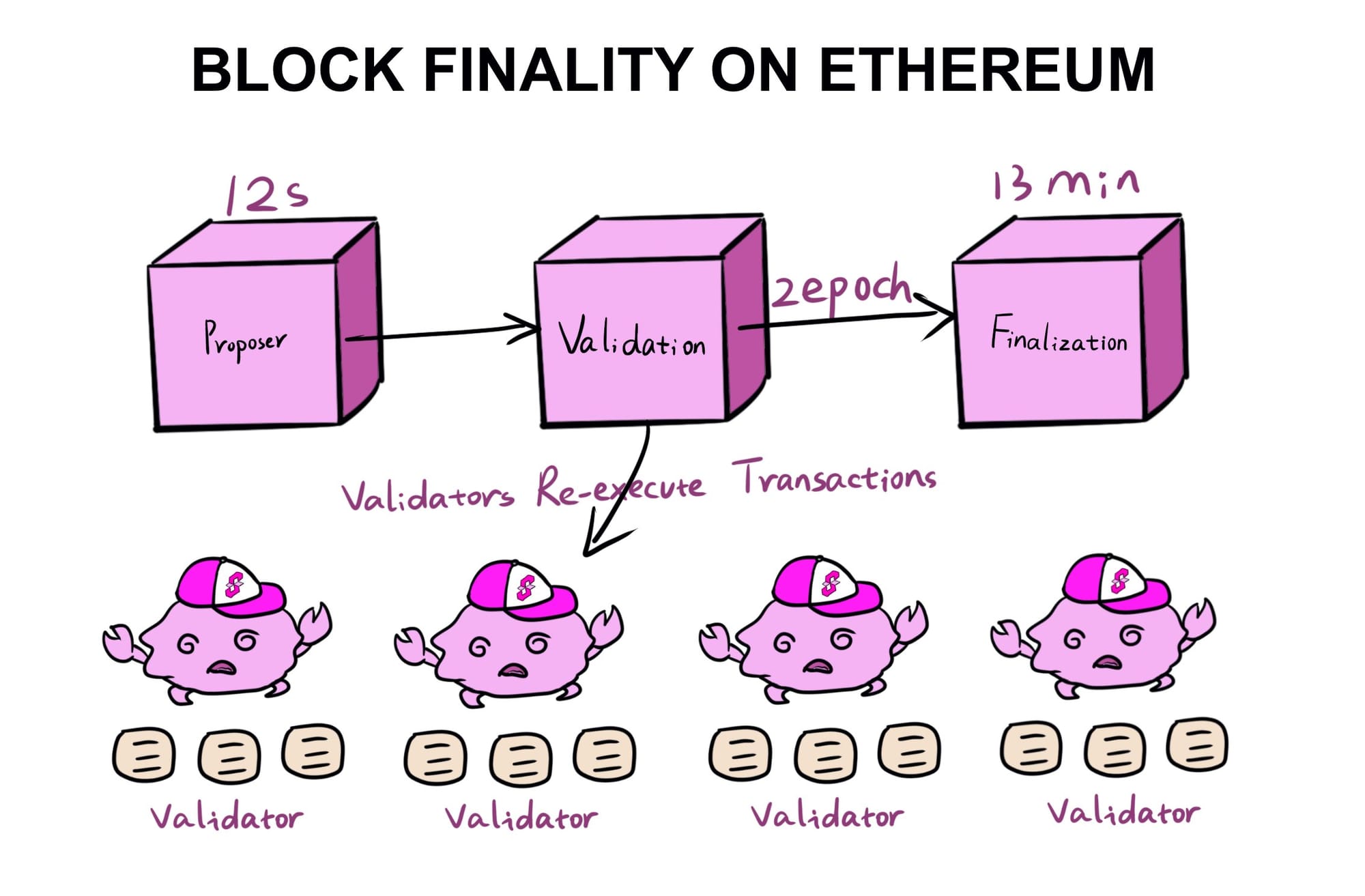
The Core Problem: Redundant Execution
The need for every validator to re-execute every transaction creates a bottleneck. Not only does it limit the transaction per seconds(TPS), but it also delays finality and consumes massive computational resources. As Ethereum scales to support more rollups, apps, and users, this model doesn’t hold up.
What if validators could skip re-execution, yet still be 100% sure the block is valid?
Enter Zero-Knowledge Proofs (ZKPs)
ZKPs allow one party (the prover) to convince another (the verifier) that a computation was performed correctly without revealing the full computation. The implications for Ethereum are massive.
Instead of re-running the block, a zkVM (zero-knowledge virtual machine) runs the transactions, then generates a cryptographic proof of correct execution. This proof is compact and fast to verify.
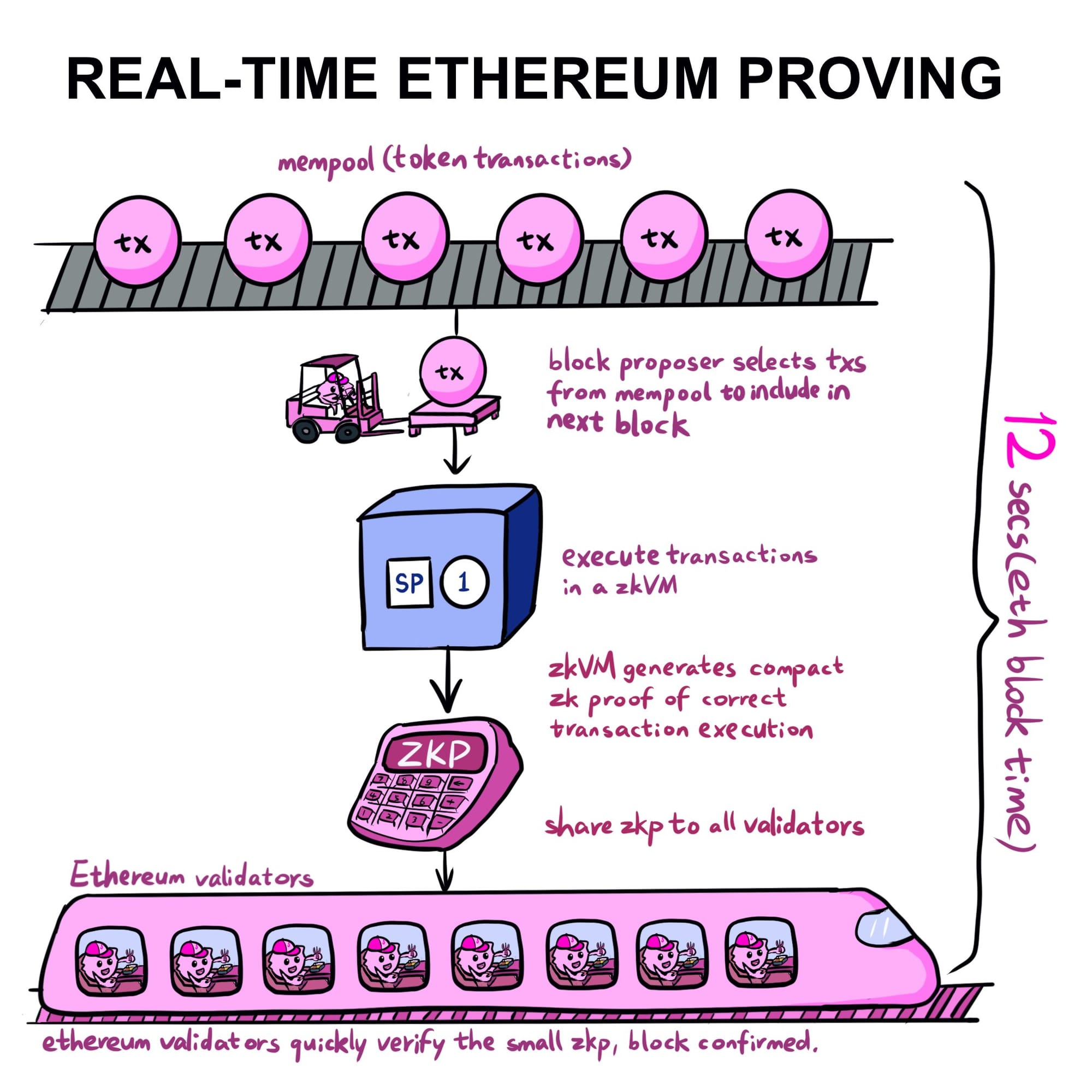
If the zkVM and prover are fast enough, validators can verify the proof within the 12-second block window. That’s what researchers and developers mean when they say:
"Validity proving Ethereum at 1-block latency"
Real-Time ZK Proofing: What It Looks Like
- Block proposer runs transactions inside a zkVM
- zkVM outputs a compact ZK proof
- Validators verify this proof instead of re-executing the block
- Finality is achieved almost instantly
This process replaces trustless re-execution with trustless proof verification, which is dramatically more efficient.
What About Performance?
As of early 2025, the average time to generate a ZK proof for an Ethereum block is about 4 minutes, according to ethproofs.org, a community resource tracking zkVMs and proof times.
That’s too slow for real-time proving, but zkVMs are getting faster fast.
Who's Leading?
According to the latest benchmarks:
- SP1 by @Succinctlabs is the fastest zkVM for proving Ethereum blocks.
This means it may soon be possible to finalize Ethereum blocks within the time it takes to produce them.
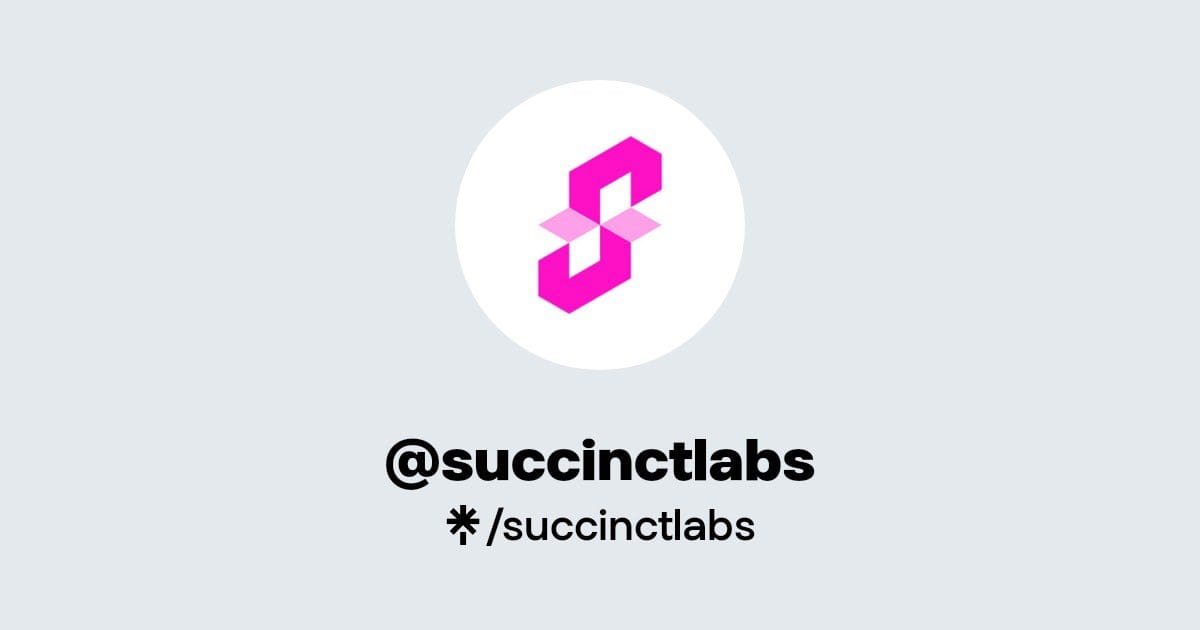
Why It Matters: Scaling Ethereum by 100x+
This shift isn’t just about speed. It’s about architecture.
Ethereum’s current node design is inherited from Bitcoin: every validator must re-execute everything. This is fine for small-scale networks but becomes a bottleneck as the chain grows.
With ZKPs and real-time proving, Ethereum can evolve:
- Decentralization remains: anyone can run a verifier.
- Security improves: proofs are deterministic and cannot be faked.
- Scalability explodes: computation happens off-chain, but validation stays on-chain.
Long-Term Vision: Ethereum as a Proof-Verification Layer
The goal is to move Ethereum from a network that re-executes everything to a network that verifies everything.
In this world:
- zkVMs execute blocks off-chain
- Validators verify compact proofs on-chain
- Finality is instant
- Fees drop and throughput rises
This is also the model for Ethereum rollups, but real-time proving brings this power to L1 itself.
CONCLUSION
Ethereum’s scalability ceiling is breaking. Zero-knowledge proofs are more than just privacy tools, they’re the linchpin for Ethereum’s evolution into a high-performance, decentralized world computer.
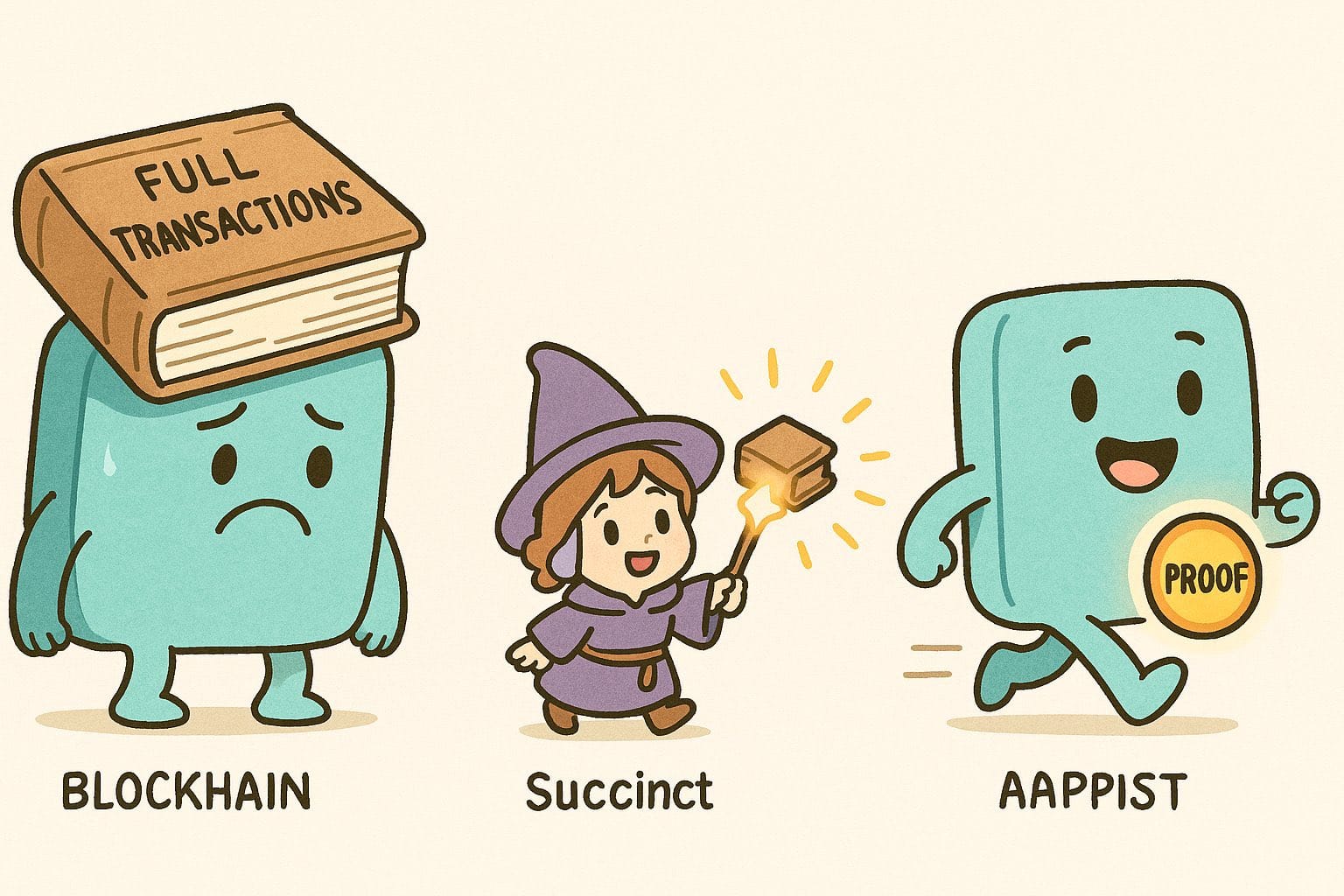
If zkVMs like Succinct's SP1 can reach real-time speeds, Ethereum could soon finalize blocks in a single round. That means faster apps, cheaper fees, and massive scalability gains all without sacrificing trustlessness.
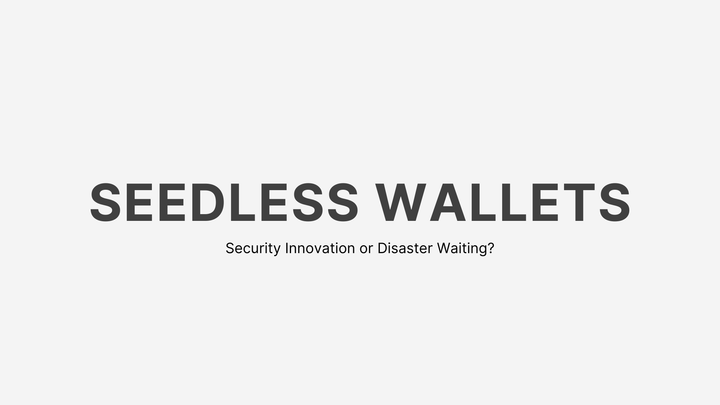
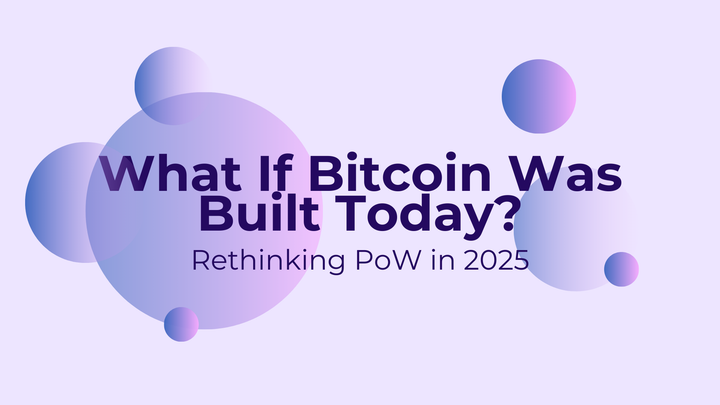
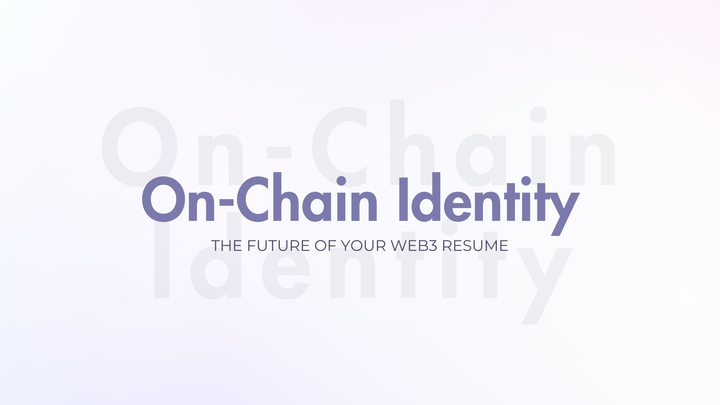
Comments ()